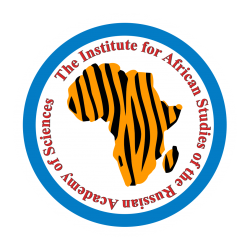Author:
Abstract:
The article exposes the influence of the global governance mechanisms and institutes upon the development of science in African countries and reveals the role of research and development in the realization of the Africa’s development goals in the 21st century. In the foreseeable future, Africa’s participation in the world economy and in the formation of a new system of global governance will be determined by the continent’s natural resource potential and by its rapidly growing and qualitatively changing population. The increase of Africa’s human capital through the growths of its scientific potential in a vital condition for the realization of the 21st century development goals.
Keywords:
development goals, global governance, Africa, science, innovations, technologies
References:
Подробнее см.: Фитуни Л.Л., Абрамова И.О. Закономерности формирования и смены моделей мирового экономического развития // Мировая экономика и международные отношения. 2012. № 7. С. 3–15; Фитуни Л.Л. Смена моделей мирового развития и глобальное управление в цивилизационном измерении // Восток. Афро-Азиатские общества: история и современность. 2013. № 4. С. 18–29.
Ср., например, подходы Joseph K. Ngare. Neoliberal Global Governance: A Study of How International Development Organizations Transform East African Mediascapes. Carleton University (Canada), 2008; Mwangi S. Kimenyi and Nelipher Moyo, Enhancing Africa’s Voice in Global Governance // Foresight Africa: Top Priorities for the Continent in 2012. Brookings Institution. Wash. D.C., 2012. P. 12–14, и Rosenau J. The Study of World Politics. V. 2 “Globalization and Governance”. Routledge. L.-N.Y.; 2006. Ботон, Джеймс M. и Брэдфорд, Колин И.-мл., Глобальное управление: новые участники, новые правила // Финансы & развитие. Вашингтон, 2007. Декабрь. P. 10–14; Барабанов О.Н. Проблемы глобального управления: выбор аналитической парадигмы // «Вестник международных организаций: образование, наука, новая экономика». 2009. № 2 (24). С. 5–13; Войтоловский Ф. Идеология «глобального управления»: от утопий к практике // Международная жизнь. 2011. № 9. С. 69–94.
Комплексные многоаспектные исследования данной проблемы отсутствуют полностью. Существующие работы посвящены либо отдельным ее ракурсам (см., например, Shaw Т., Emerging Powers and Africa: Implications for/from Global Governance? // Politikon. Johannesburg. 2009. V. 36. № 1. P. 27–44), либо страновым подходам (такие как Bond P. South Africa’s agenda in 21st century global governance // Review of African Political Economy. 2001. V. 28. № 89. P. 415–428; Grant J.A. & Taylor I. Global governance and conflict diamonds: the Kimberley Process and the quest for clean gems // The Round Table: The Commonwealth Journal of International Affairs. L., 2004. V. 93. № 375. P. 385–401).
Саямов Ю.Н. Глобальное управление наукой – химера или требование жизни? // Век глобализации. 2015. № 2; http://www.intelros.ru/readroom/vek-globalizacii/
Global Governance of Science – Report of the Expert Group on Global Governance of Science to the Science, Economy and Society Directorate, Directorate-General for Research, European Commission. Brussels, 2009.
Саямов Ю.Н. Указ. соч.
Фитуни Л.Л. Место Африки в посткризисной мировой экономике // Азия и Африка сегодня. 2011. № 1. С. 15–20.
